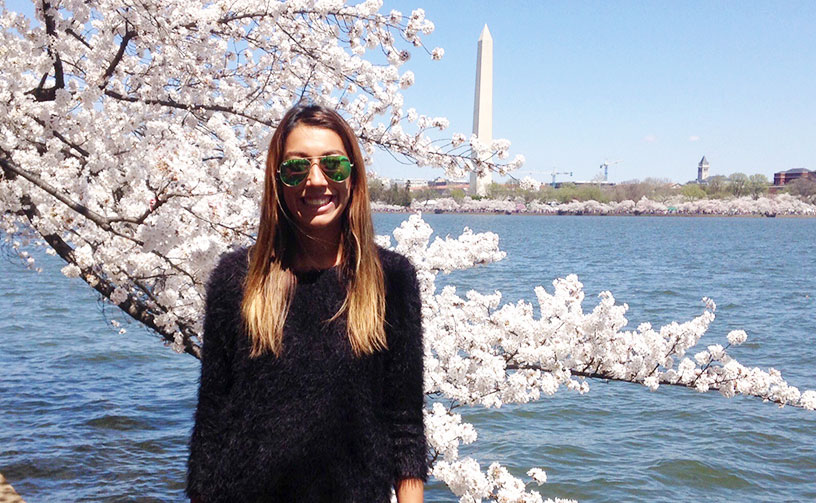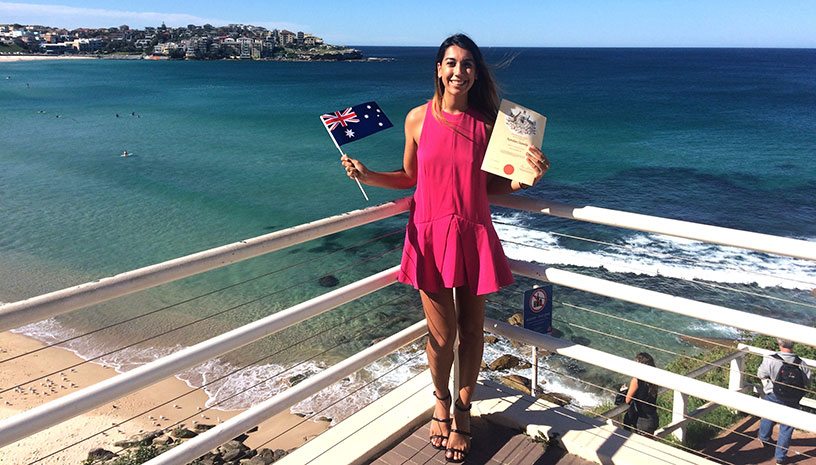Reverse culture shock
Growing up in Washington, DC, I never would’ve imagined I’d end up spending 10 years in Australia. Kangaroos, koalas and that Olsen twin movie (you know the one) were the only things I knew about the country. But, after deciding to do a uni exchange in Sydney and falling for the city, I knew I had to come back. So I did. Long story short, I wound up staying for nearly a decade. Today, I use the word ‘home’ to refer to both.
During that time, I’ve experienced my fair share of reverse culture shock. Not just going between the two – Washington and Sydney – but also from spending extended periods of time travelling elsewhere. If you’re unfamiliar with the term, it’s one used to describe the emotional and psychological distress suffered by people who, upon returning home from extended time away, find they don’t fit in. On more occasions that I can even remember, I felt out of place and culturally confused.
Here, I’ve identified some of the other feelings that arise with reverse culture shock and, based on my own trial and error experiences, suggested some ways to tackle them.

Cultural confusion
It can be difficult adjusting to a new culture when travelling, everyone knows that. What’s less talked-about however is how hard it can be adjusting back to your old one when you’re back home. It can be particularly frustrating when, if you travelled alone or aren’t returning home at the same time as your fellow travellers, you find yourself alone in the situation.
Realising this one thing should make it much easier for you to deal with: you’re in an incredibly fortunate situation. You now had in-depth experience of different cultures. You’ll have become more open-minded. You can now look at the world from two different points of view. In my case, in regards to Australia and the US, I realised I could now look at it through Australia’s general ‘work to live’ mentality as well as Americans career-driven outlook. I could pick and choose what I liked from each culture to adopt into my own life.

Constant comparisons
It’s only natural that after a significant amount of time spent in a foreign country, you’ll be well-versed in all the quirks of their culture. And you’ll want to share those discoveries with others. After my first extended stretch in Australia, when I returned to the US, I constantly hearing myself say, “In Australia, they do it this way” or “In Australia, they don’t have that”. It’s likely after you travel, you’ll do the same.
But while your friends and family may tolerate it for the first few times, by the 10th time, I can guarantee that even you will be tired of hearing the comparisons. The cultures are different – that’s a given. It shouldn’t be surprising. To combat the commentary, remind yourself: you’re back home now – appreciate being there and try to be present.

Surprise at how foreign things feel
Another issue you may face is how different activities and things you used to do now seem in contrast to what you’ve just experienced while away. While this will of course happen more if you’re away for longer, it may still also occur to some degree on shorter trips. For me, after a long stint away in Australia, my first July 4th, American Independence Day, at home, felt like a novelty. Drinking out of red cups (now more common in Australia, but not as much when I first moved over) felt… odd. I was taken aback by those feelings.
As time went on however and the more visits I made back to the US, I grew more accustomed to them. Know that those ‘foreign’ feelings never completely subside. Every trip you take, you’ll still experience some degree of it when you return home. Expecting it however is half the battle to working through it.

Realisation things have changed
While this doesn’t entirely fall under reverse culture shock, it’s somewhat related as it’s what also inevitably happens after spending time away from home. It’s the discovery that while you were off travelling or living your life elsewhere, the world kept revolving. Who would have thought?
Whether you’re gone for a month or a year, things at home happened during that time. In my case – again, the longer time away – new stores had sprung up at my local shopping centre. Old ones had been closed down. There were new construction sites everywhere. It was disorienting to say the least. It can be disorienting. My advice? Channel that disorientation into excitement. After all, catching up on what’s new will be the perfect distraction from the realisation your trip is over.
While this advice is of course imparted by me, an untrained psychologist, and is based on my own experience, it should have provided some insight into how reverse culture shock can reveal itself and how to handle when it does. If the only thing you manage to get out of it is the knowledge that you’re not alone in those feelings, you’re already on.
Материал о моментальный кредит на карту представлен мягко и деликатно, чтобы читатель мог понять суть формата без ощущения спешки. Текст подчёркивает удобство оперативного рассмотрения заявок, но остаётся нейтральным и осторожным в формулировках. Такой примерный стиль помогает воспринимать тему спокойно и уверенно, понимая, что речь идёт лишь о механике процесса, а не о гарантированном исходе. Подобная подача создаёт дружественную атмосферу и облегчает изучение.
Sangeeta Kocharekar is a freelance writer specialising in travel and life. When she’s not hunched over her laptop, she spends her days browsing plant stores and taking photos of beaches and brunches for Instagram. You can view them here.
The views, opinions and positions expressed by the author and those providing comments are theirs alone, and are meant as travel inspiration only. They do not reflect the opinions of Cover-More Insurance. You should always read the Policy Documents available from your travel insurance provider to understand the limits, exclusions and conditions of your policy and to ensure any activities you undertake are covered by your policy.